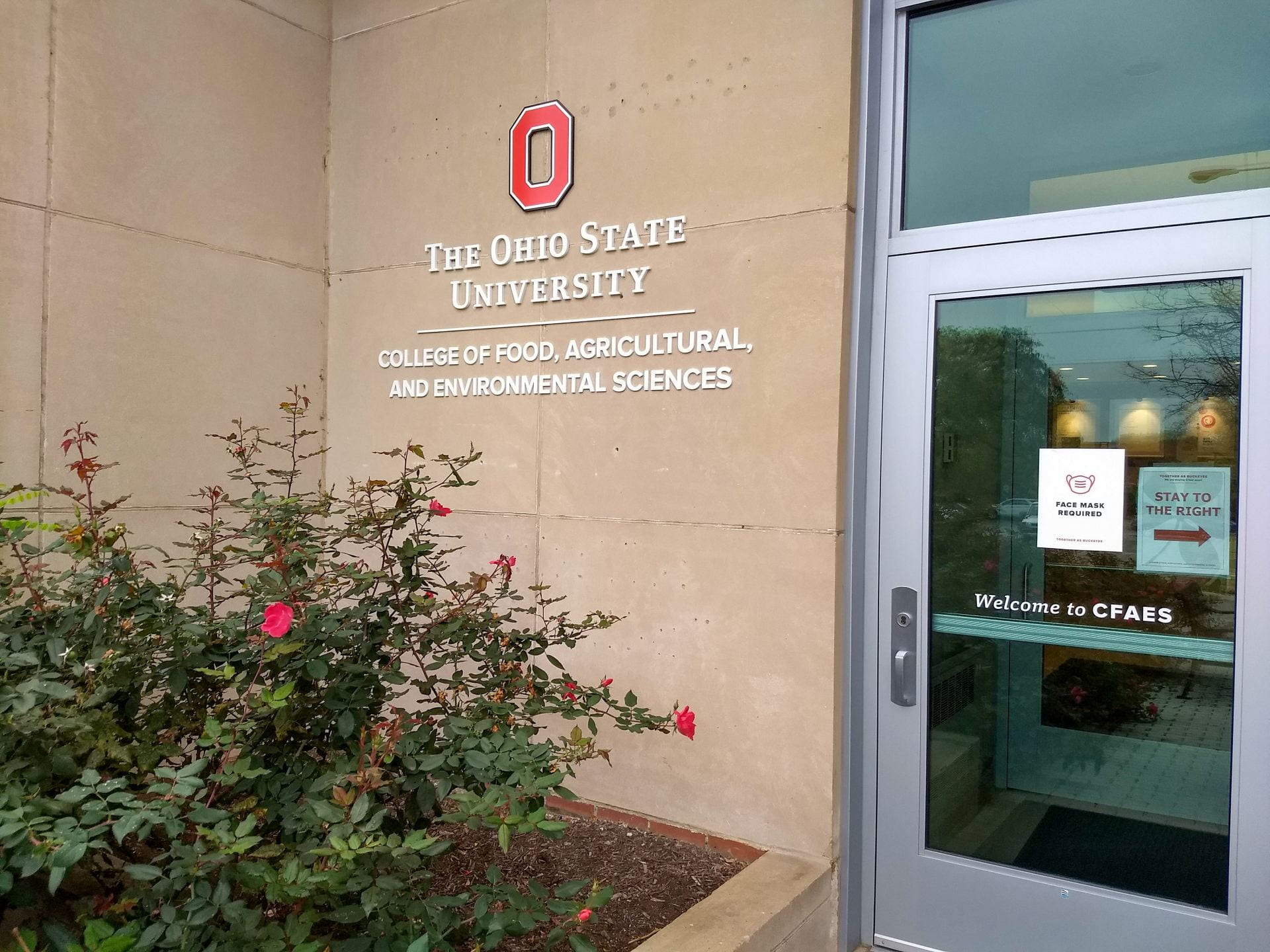
The Agricultural Administration Building on West campus is home to the College of Food Agricultural and Environmental Sciences. Credit: Vincent Lucarelli | Lantern Reporter
From El Salvador to Honduras to Texas to Ohio, Rafael Quijada Landaverde has traveled, learned and worked with one common goal — alleviating food and nutrition crises.
Now, the Ohio State doctoral student in agricultural communication, education and leadership is one of seven people from Central and North America working as a Kirchner Food Fellow, aiming to alleviate issues of food insecurity in the United States and Mexico.
The year-long Kirchner Food Fellowship Program looks to develop low-cost investment models to promote global food security. It is sponsored by the Kirchner Group, an investment firm based in Alabama.
“Most of the fellowships that you can find in food security are focused on advice for how you can develop and design programs, but this fellowship is really focused on investment,” Quijada Landaverde said.
Blair Kirchner, director of the Kirchner Group, said in a release that the fellowship began in early September and the positions are competitive.
“Our selection process gets more and more difficult each year as the program’s profile grows, expanding our remarkable applicant pool,” Kirchner said.
Quijada Landaverde said the program could have an impact on his career and professional development.
“This is a big network with other students and young professionals. We get the chance to interact with entrepreneurs who are creating or promoting different initiatives not only in the United States but all over the world,” Quijada Landaverde said. “It’s a really cool experience because I am aspiring to one day be in a position where I am making these kinds of decisions in terms of grants and looking for grants.”
The Kirchner Fellows are divided into two cohorts, with one focused in the United States and the other focused in Mexico. Quijada Landaverde, who graduated from Zamorano University in Honduras and received his masters in agricultural education from Texas Tech University, was chosen for the Mexican cohort.
Quijada Landaverde said although he knew he wanted to apply for the fellowship after someone from Zamorano University was selected a few years ago, he didn’t feel ready.
“I needed to be more prepared in order to be competitive,” Quijada Landaverde said.
For Quijada Landaverde — whose doctoral focus is international development — the issue of food security is especially important now due to the COVID-19 pandemic.
“When people think about food security, they immediately think, ‘There is no food,’ but food security has so many other expressions,” Quijada Landaverde said.
He said among these expressions are malnutrition and food chain deficiencies caused by COVID-19.
After he receives his doctorate in the spring of 2022, Quijada Landaverde said he wants to continue traveling, develop programs with the World Bank of the United Nations, or pursue a career in academics.


